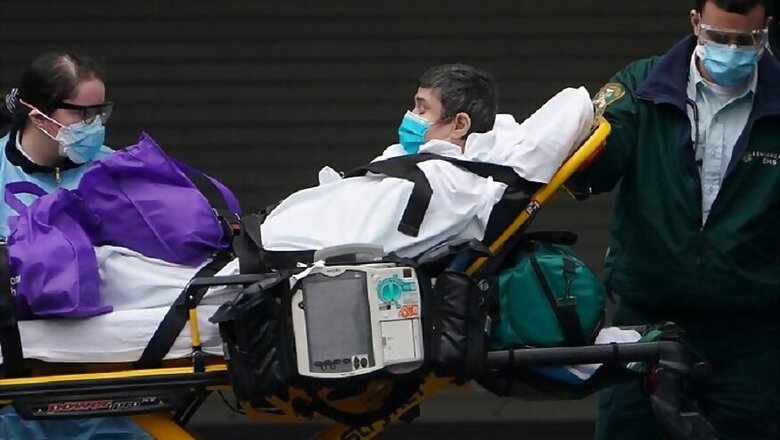
views
Even as the world grapples with the coronavirus pandemic, scientists have found a silver lining that could possibly help fill the chinks in the essential public services. One in 34,000 persons on the planet have tested positive for Covid-19 and have later recovered from it, writes Peretz Partensky for Wired. The real figures of those who have recovered are much higher and will continue to increase. They are a greatly underappreciated resource, the report adds.
Their “privileged immune” condition makes them an ideal contender for a “hopeful concept” – the CoronaCorps. The CoronaCorps, Partensky writes, is a civilian army that may be able to fill the gaps in public services, shield the vulnerable from the infection, help chart the proliferation of the virus and give the US medical system some much-needed breathing room.
The detection of this “civilian army” must become a priority. According to the article, it is imperative that as many immune individuals as possible, be recognised, their immunity be certified in an official manner and they be stationed in places where their utility can be maximized.
“We are at war, and this is our draft. Immunity comes with responsibility,” writes Partensky.
Doctors in Germany are looking to start issuing immunity certificates this month, giving clearances to people to go back to work, the report said. The United Kingdom, too, had recently announced its plan of allocating “immunity passports” in this regard.
To make this system work, one needs to enable those who have this “newfound superpower” and help them use it for “the common good”. Partensky lists six steps that must be followed for it to happen.
1. Award Immunity Certificates
The FDA should make headway in license at-home, direct-to-consumer testing for immunity using pinpricks, at the earliest, the report said. It, however, also cautioned against its limitations, including false-positives.
“Such tests could likely be imperfect…For example, if detected antibodies were produced in response to coronaviruses other than SARS-CoV-2, or if they target SARS-CoV-2 in such a way that fails to neutralize it,” the report said.
Even then, this could at least help recognizing contenders for more rigorous follow-up testing and official certification. “They may also facilitate crowd-sourced contact tracing and improve our understanding of the total prevalence of Covid-19 in the US population,” the report said.
2. Give Candidates Formal Immune-status Certification
Candidates spotted through at-home tests or tele-screenings should be scheduled for formal immune-status certification at drive-through clinics, the report said. The criteria for this certification should be kept at a national level and updated frequently. “To start with, the standard might specify a threshold for detection of persistent antibodies targeting currently known neutralizing sites on the virus,” Partensky writes.
The methodology for testing is likely to progress quickly, which will be of consequence to the certificate’s period of validity and needed frequency for retesting. “Official guidance for the standard must accept and acknowledge this fact,” the report adds.
3. Enlist and Strategically Deploy the Army of the ‘Recovered and Immune’
Whoever gets their immune certification should be persuaded to volunteer for the CoronaCorps. One does not need to be infected to be of help, the report adds. However, the edge that the immune-certified have is that they can move through and between the quarantined, ensuring the supply of essential goods and services, while minimizing personal risks. “Public health specialists and epidemiologists should provide guidance for the most efficient deployment of immune individuals to slow the spread,” Partensky adds.
4. Support the Census
Given the “operational-challenges of the US census,” Partensky says that it could be used to deploy the CoronaCorps in large numbers. The 2010 census employed over 600,000 people, he writes.
It is our “constitutional responsibility” to allow the census to go on and give it meaning in our current moment, the report adds. “Now, more than ever, it is important to let each person know they count.”
5. Design a Global Adaptive Immune System
Creating an army of those who have recovered is more than a “pandemic surge-remediation strategy,” the report says. The bodies of CoronaCorps volunteers would be instrumental to our “collective immune system”.
“This is an advantage humanity has over the virus: Our defense strategies are more mutable; we adapt at multiple scales,” the report says.
We are capable of self-organising and designating our resources for maximum efficiency, the report adds. It may become possible to reallocate the antibodies in our blood, wielding them as a “medicine” to safeguard others. We can asses and modify our battle formation based on “epidemiological models and insulate paths of transmission,” Partensky adds.
“Let us mobilize this advantage,” he concluded.




















Comments
0 comment